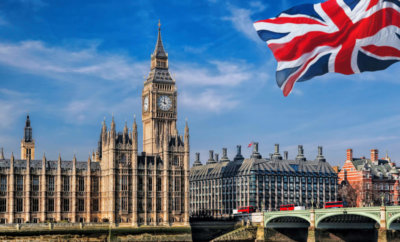Immigration
UK’s Goan Hub of Eastcott Swindon Gets Indian-Origin Councilor

Imtiyaz Shaikh
Photo: Facebook
Swindon is home to roughly 20,000 Goans, many of whom moved to the UK after applying for Portuguese citizenship.
Eastcott Swindon, a UK town home to roughly 20,000 Goans, elected its first Indian-origin borough councilor on May 3, the Times of India reported. Imtiyaz Shaikh, who contested as a Labour Party candidate, won with 1,621 votes while his closest competitor in the five-cornered contest for the seat, Toby Robson from Liberal Democrats, got 1,344 votes.
“Now that I’ve won, my aim is to listen to issues local residents face and try to find solutions while maintaining an honest and open relationship with the council and fellow councilors,” Shaikh, 37, told the publication after his victory. “I came to London in 2005 with a dream of making something out of my life, with the opportunities the country offered. My experiences during the last 13 years have been nothing but positive, living in a country that embodies unity through diversity,” he added.
Shaikh moved from Vasco da Gama to the United Kingdom about a decade ago. The father of two finished his education at St Joseph’s Institute, Vasco, and then worked at Western Union Shipyard Ltd.
Understanding the need for a representative for the Goan diaspora in local politics of the area, Shaikh contested on a Liberal Democrat ticket in 2014 and subsequently, on a Labour party ticket in the recent elections. The Labour Party, he said, has always “stood by and supported immigrants and worked towards a fair and open policy for all.”
Shaikh is among several councilors of Indian origin to be elected in the local elections for boroughs in London, Leicester, Birmingham and Manchester, the Hindustan Times reported. The borough council is a section of lower government, which looks into council tax collection, housing, planning applications, waste management and recycling.
Shaikh, who served as a secretary of Vasco da Gama Swindon Community, is a leading member of Swindon’s fairly large Goan community. Many of the Indian-origin residents in the area are said to have reached here through a provision in the UK law, which gives citizens of the European Union the right to live and work in the country. Goa was a Portuguese colony, and according to Portuguese nationality law, people born in the Indian state before the end of its colonial rule in the state on Dec. 19, 1961, and their next three generations, can claim Portuguese citizenship after registering their births in Lisbon.
About 28,000 Portuguese residents of Indian origin lived in the United Kingdom as of June 2017, according to the Office for National Statistics. The number has surged from 13,000 in June 2014 as the community made Swindon, a town nearly 130 km southwest of London, their hub. A small population lives in London and Leicester as well.
The “backdoor” immigration of Goan-origin Portuguese nationals has been a matter of criticism and debate for years. The Oxford University published a study in 2015, that illustrated how Portugal became the biggest gateway into the United Kingdom for tens of thousands of immigrants born outside the European Union.
There had been much uncertainty over the status of Goan-origin Portuguese nationals post-Brexit as they had been living in the United Kingdom as European Union citizens in the country. The uncertainty compounded over the recent Windrush scandal, regarding forcing members of the “Windrush generation” to leave the United Kingdom in order to meet net immigration targets.




You must be logged in to post a comment Login